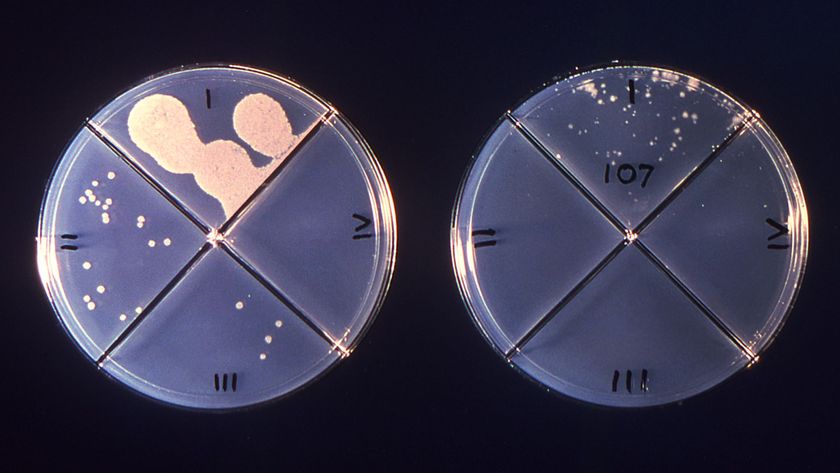Why Teens Have Sex (Hint: It's Not About Vaccines)

At least one of the arguments used by conservative Republican presidential candidates to criticize Texas Gov. Rick Perry's attempt to mandate that girls get vaccinated against the sexually transmitted infection HPV is wrong, experts say.
Perry's 2007 attempt to mandate the vaccine in Texas girls failed, in large part because conservative groups argued that inoculating girls against human papilloma virus, a sexually transmitted infection that can lead to cervical cancer, might send the message that teen sex is okay. But sexual educators say that there's no evidence that a shot will lead to promiscuity. [Top 10 Stigmatized Health Disorders]
"Teenagers, by and large, have sex episodically," said Bill Albert, a spokesman for The National Campaign to Prevent Teen and Unplanned Pregnancy. "It has much more to do with opportunity than it does with a vaccination, for heaven's sake."
In addition, Albert told LiveScience, teen sexual activity has been decreasing over the last four years. Gardasil, drugmaker Merck's vaccine against HPV, was approved by the Food and Drug Administration in 2006. (Since then, in 2009, the FDA approved another HPV vaccine called Cervarix, manufactured by GlaxoSmithKline.) There have not been direct studies on the effect of HPV vaccination on teen sexual decisions, Albert said, but dropping rates of sexual activity since the vaccine's introduction suggest that the injections aren't causing teens to throw caution to the wind.
"It hasn't had the undesired effect yet," he said.
Vaccine controversy
The Gardasil vaccine protects against two strains of HPV that cause most genital warts and two strains that cause most cases of cervical cancer, a disease that kills about 4,000 women in the United States a year, according to the Centers for Disease Control and Prevention (CDC). The CDC reports that the main side effect of the vaccine is fainting, and there is no pattern of adverse effects suggesting that Gardasil is unsafe.
Sign up for the Live Science daily newsletter now
Get the world’s most fascinating discoveries delivered straight to your inbox.
In 2007, Perry issued an executive order mandating the vaccine for Texas schoolgirls, an order that included an opt-out for parents who were opposed to vaccinating their children. Perry was criticized for financial ties to Merck and by social conservative groups who felt that the vaccine would encourage teen sex. The order was eventually overturned by the Texas legislature.
The decision came back to haunt Perry at Monday (Sept. 12) night's Tea Party Express presidential debate, where his fellow candidates blasted him for overreaching with the vaccine order. Currently, diphtheria, tetanus, pertussis, polio, measles, mumps, rubella, hepatitis B, varicella (chickenpox), meningococcal and hepatitis vaccines are all required by Texas schools, but at the debate, former U.S. Sen. Rick Santorum of Pennsylvania voiced concerns that Gardasil is different, saying, "Unless Texas has a very progressive way of communicating diseases in their schools by way of their curricula, then there is no government purpose served for having little girls inoculated at the coercion of the government." [5 Dangerous Vaccination Myths]
Vaccines and teen sex
Parents often underestimate the extent to which their teenagers are sexually active, studies show, which may explain some of the resistance to the vaccine: If you believe that your child will not have sex as a teen, and will never sleep with an HPV carrier, you may be unmotivated to get them the vaccine.
But studies also show a widespread belief that getting the vaccine will actually encourage teens to start having sex early or with more partners. A 2008 study in the Journal of Adolescent Health asked almost 700 moms and teen girls in the United Kingdom about whether they thought HPV vaccination would change teenagers' approach to sex. About a quarter of mothers and a third of adolescent girls said they thought getting the vaccine would make girls in general more likely to have sex, and to do so without protection.
But when asked about their own behavior, the teenagers were much less likely to say Gardasil would make a difference: 31.6 percent said other girls would be more likely to have sex, but only 16.9 percent said the same about themselves. Even more strikingly, 37.5 percent predicted that most girls would be less likely to use protection after vaccination, but only 8.4 percent said they themselves would be less likely to use protection after getting the vaccine. The study only looked at perceptions, not actual behavior, the researchers wrote, but it could be that both adults and teens underestimate other people's ability to use good judgment.
Influencing teens
While there are no studies investigating vaccinated and unvaccinated teens' actual behaviors, there is a parallel line of research on the effect of making condoms freely available to teenagers. Those studies have turned up no evidence that condom availability increases sexual activity.
A 1999 study published in the American Journal of Public Health found that in Seattle schools that instituted free condom programs, the percentage of high school students who had ever had sex remained stable after the programs began, and the percentage of currently sexually active students actually declined slightly. A similar study, published in 2003 in the same journal, looked at high school students in Massachusetts and found no link between condom availability and the likelihood a student would have sex. Those who were sexually active, however, were more likely to protect themselves with condoms.
Certain factors do influence whether teens start having sex early, Albert said, including dating an older partner. But the largest influence on teen's sexual decisions lies not with Perry or within a vaccine syringe, he said.
"Teens tell us in surveys and studies that it is parents that most influence their decisions about sex," Albert said. "Not the media, not popular culture, not their partners, not even politics. It is parents that teenagers say matter most. So I hope that in the din of the most recent political dust-up that parents stay focused on the fact that they matter a lot when it comes to their kids' decisions about sex, whether they know it or not."
You can follow LiveScience senior writer Stephanie Pappas on Twitter @sipappas. Follow LiveScience for the latest in science news and discoveries on Twitter @livescience and on Facebook.

Stephanie Pappas is a contributing writer for Live Science, covering topics ranging from geoscience to archaeology to the human brain and behavior. She was previously a senior writer for Live Science but is now a freelancer based in Denver, Colorado, and regularly contributes to Scientific American and The Monitor, the monthly magazine of the American Psychological Association. Stephanie received a bachelor's degree in psychology from the University of South Carolina and a graduate certificate in science communication from the University of California, Santa Cruz.











